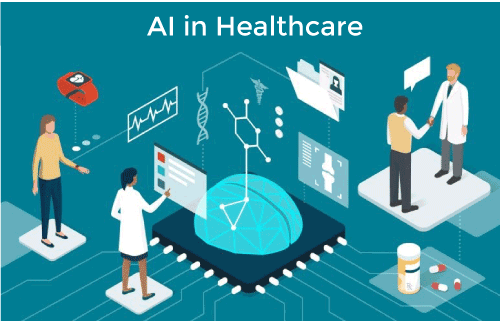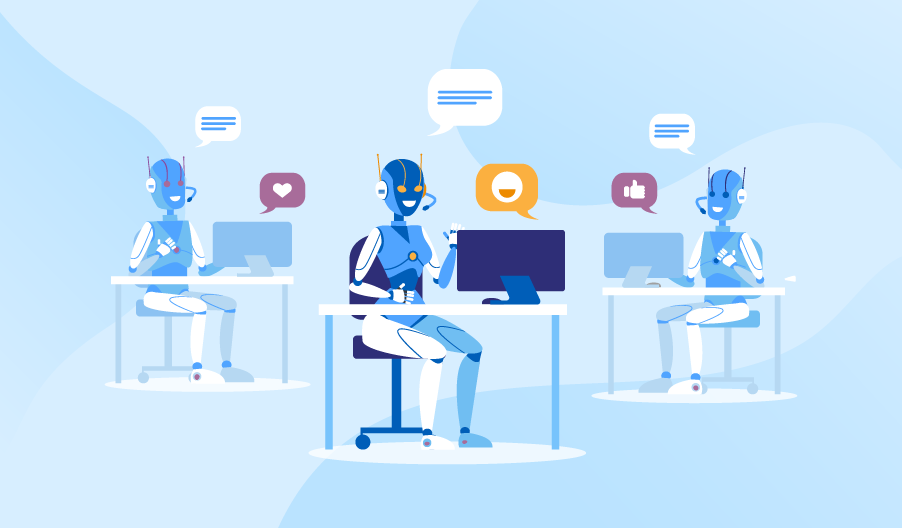Revolutionizing Healthcare: The Power of Artificial Intelligence
- Akshan Bansal
- Aug 8, 2023
- 2 min read

In a generation marked by the aid of extraordinary technological advancements, the intersection of healthcare and artificial intelligence (AI) has emerged as a beacon of desire for enhancing patient consequences, improving diagnostics, and reworking the way scientific professionals supply care. As AI adapts, it's paving the way for a new generation of precision medicine, early detection, and personalized remedy plans.

1. Diagnostics and Imaging: A New Dimension of Accuracy
AI's capacity to analyze substantial quantities of medical information at a velocity humans could never obtain is changing the landscape of medical imaging. Algorithms are now able to detect subtle abnormalities in X-rays, MRIs, and CT scans, aiding radiologists in making quicker and extra accurate diagnoses. This now not only expedites the prognosis but also minimizes the danger of human error.
2. Predictive Analytics: Forecasting Patient Health
One of the maximum promising elements of AI in healthcare is its capability for predictive analytics. By reading patient facts and ancient tendencies, AI algorithms can become aware of early symptoms of potential health troubles, allowing clinical specialists to intervene before situations worsen. From predicting sickness outbreaks to monitoring persistent situations, AI is enhancing our capacity to manage affected person fitness proactively.
3. Personalized Treatment Plans: Tailoring Care to Individuals
Every affected person is unique, and AI is taking personalized remedies to the subsequent degree. By reading genetic, environmental, and way of life facts, AI can generate treatment plans which can be tailored to each individual's unique desires. This focused approach now not only increases the possibilities of a success results but additionally minimizes negative consequences with the aid of accounting for patient versions.

4. Drug Discovery and Development: Accelerating Innovation
Traditional drug discovery and development methods are frequently time-eating and pricey. AI is converting this paradigm with the aid of reading large datasets to become aware of potential drug candidates, expect their efficacy, and streamline clinical trial approaches. This not only hurries up the shipping of the latest treatments but also lowers the associated expenses.
5. Virtual Health Assistants: 24/7 Support and Guidance
Virtual health assistants, powered via AI, are getting dependent on the source of fitness records for sufferers. These chatbots provide round-the-clock aid, answer medical queries, and provide steering on handling signs and seeking appropriate care. They no longer best beautify affected person engagement but additionally, alleviate the load on healthcare providers.
6. Robotic Surgery: Enhancing Precision and Minimizing Invasiveness
AI-included robot surgery systems are changing the landscape of surgical methods. With multiplied precision and minimally invasive techniques, those robots assist surgeons in appearing complicated procedures with more accuracy, main to quicker recuperation instances and reduced postoperative headaches.

7. Ethical Considerations and Challenges
As with any technological development, AI in healthcare brings moral considerations to the forefront. Concerns about information privateness, bias in algorithms, and the position of human judgment in essential choices need to be addressed to make certain the responsible and equitable implementation of AI.
In the end, the combination of AI in healthcare is poised to redefine the manner we method affected personal care, diagnostics, and treatment. From early detection to customized medicine, AI holds the promise of better results, decreased expenses, and advanced nice of lifestyles. As the generation keeps adapting, collaboration among medical specialists, researchers, and technologists can be pivotal in harnessing AI's complete capability to revolutionize healthcare.



Comments